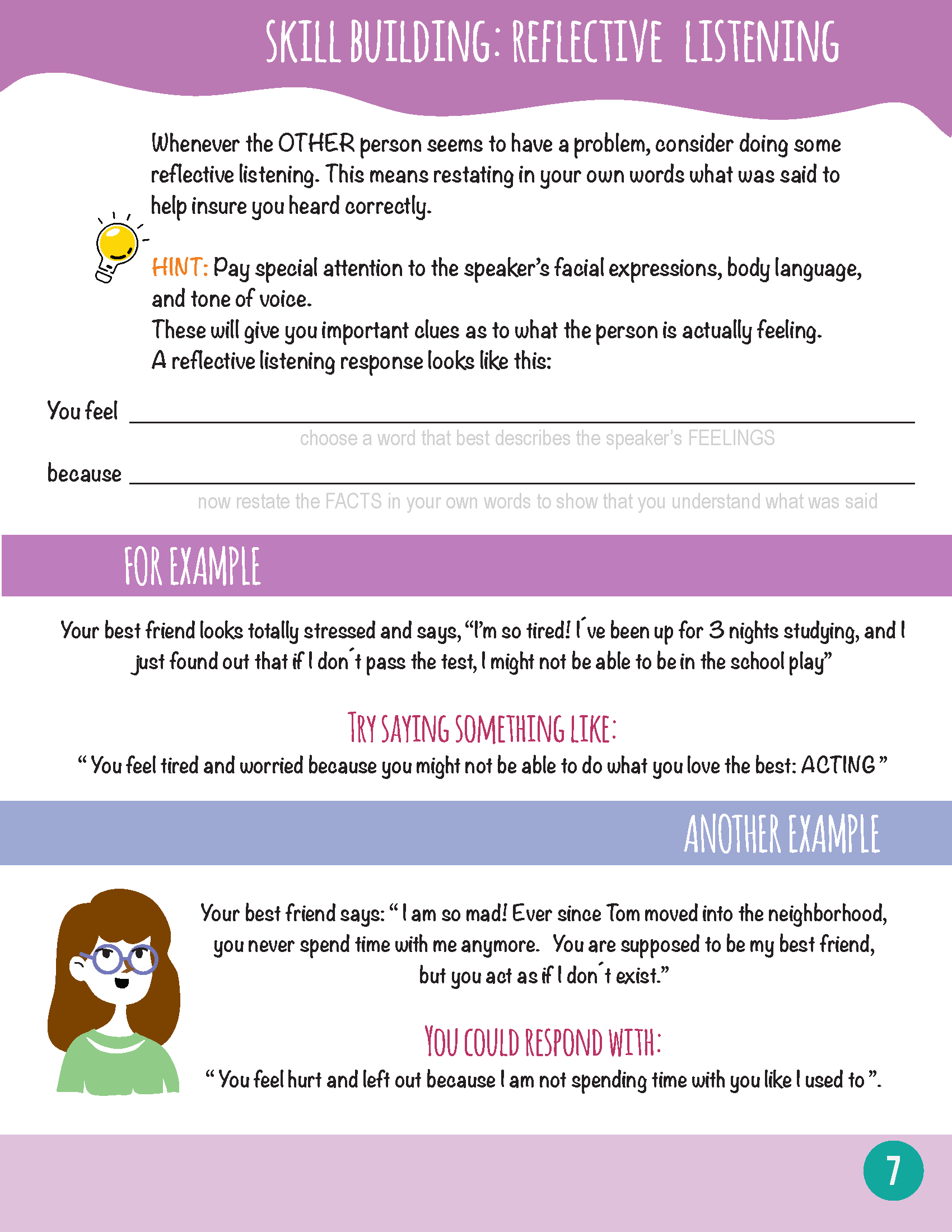
Skill Building: Reflective Listening
Whenever the other person seems to have a problem, consider doing some reflective listening.
This means restating in your own words what was said to help insure you heard correctly.
Hint: Pay special attention to the speaker’s facial expressions, body language, and tone of voice.
These will give you important clues as to what the person is actually feeling.
A reflective listening response looks like this:
You feel (choose a word that best describes the speaker’s feelings)
because, (now restate the facts in your own words to show that you understand what was said)
For Example
Your best friend looks totally stressed and says, “I’m so tired! I've been up for 3 nights studying, and I just found out that if I don't pass the test, I might not be able to be in the school play”.
Try saying something like:
“You feel tired and worried because you might not be able to do what you love the best: acting”
ANOTHER EXAMPLE
Your best friend says: “I am so mad! Ever since Tom moved into the neighborhood, you never spend time with me anymore. You are supposed to be my best friend, but you act as if I don't exist.”
You could respond with: “You feel hurt and left out because I am not spending time with you like I used to”.
Lesson Progress
- Intro to Conflict Resolution
- How People Behave in Conflict Situations
- Other Characteristics of Aggressive People
- The ABC'S of Conflict Resolution
- Other Important Tips
- Skill Building "I" Statements
- Skill Building: Reflective Listening
- More Pointers on Talking and Listening
- Listening In Conflict Situations
- Practice Skill Building “I” Statements
- Skill Building: Reflective Listening